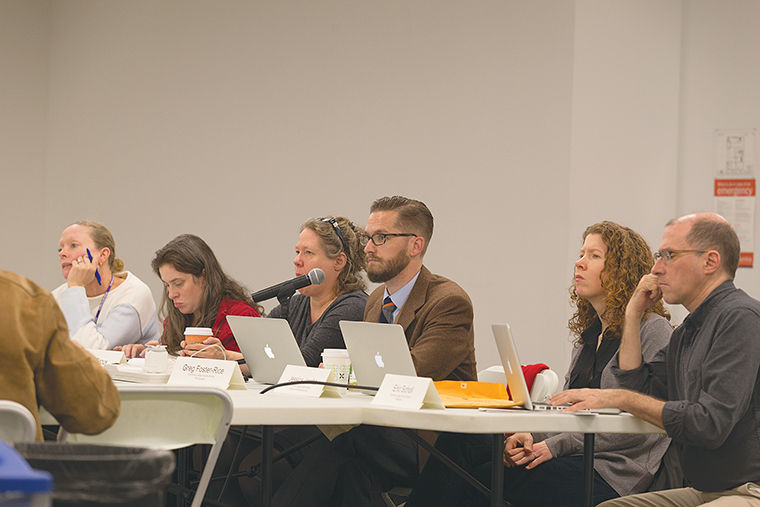New procedures to improve academic review process
An Academic Policy Review Manual was approved Nov. 16 by the Faculty Senate and the Office of the Provost to create a centralized process.
December 7, 2015
The college now has a clear set of guidelines for revising existing academic policies and procedures and creating new ones.
An Academic Policy Review Manual has been approved to address a lack of communication regarding curriculum and academic policy between the administration and the college’s three schools, according to Greg Foster-Rice, an associate professor in the Photography Department and president of the Faculty Senate.
The manual, which was drafted and voted on by the Faculty Senate and approved by the Office of the Provost on Nov. 17, took effect immediately and will be fully implemented in fall 2016 to align with the Strategic
Plan’s implementation.
Stan Wearden, senior vice president and provost, approached the Faculty Senate’s Academic Affairs Committee in October 2014 with a plan to revise the college’s academic review process to articulate and clarify existing policies and procedures to best serve students’ interests, according to Foster-Rice.
Wearden said he wanted to develop a policy to unify the undergraduate and graduate curricula, as well as that between the different schools. He said the manual brings about effective shared governance for the college by establishing a uniform and centralized process.
“As provost, it seemed like I could just make a new policy, which didn’t seem appropriate,” Wearden said.
Previously, the college did not have a clear and centralized process for curriculum and academic policy procedure, which resulted in less-than-satisfactory communication between the different schools, Foster-Rice said.
Following the abrupt elimination of Columbia’s First-Year Seminar program that resulted in the termination of seven college employees during the Spring 2015 Semester, Foster-Rice wrote an open letter to Wearden on behalf of the Faculty Senate calling for “clear, comprehensive guidelines regarding the elimination of
academic programs.”
Foster-Rice said the manual will help prevent similar problems by establishing consistent procedures.
“We were very concerned about how all that happened, and frankly, all that happened because there was no policy,” Foster-Rice said.
Wearden said the manual will benefit students by strengthening curriculum. Foster-Rice added that it will improve clarity and communication for students about how different schools and programs are related to each other.
Foster-Rice said students will now be represented on the Academic Affairs Committee and the Graduate Policy Council, two bodies that review the college’s curriculum, through the manual.
“We are hoping this will give the faculty at the table a sense of what the students’ voice is on these matters, too,” Foster-Rice said.
Alton Miller, an associate professor in the Communication and Media Innovation Department and chair of the Senate’s Academic Affairs Committee, said it was a great opportunity to create a manual that addresses a centralized and comprehensive process.
“We have created something, which is significantly evolutionary, but not destructively evolutionary. I think that is what I am most happy about,” Miller said.
The Senate’s Academic Affairs Committee received input from the Senate’s Executive Committee, the Office of the Provost, department chairs, deans, associate deans, the Graduate Policy Council and individual faculty members to include the most valuable feedback.
Wearden said involving more people in curriculum policies leads to the creation of better proposals and makes it easier to spot duplications of curriculum in the college.
“[The manual] gives a centralized curriculum review that gets more eyes on a curriculum proposal,” Wearden said. “If the proposal is better, curriculum is better and that means the students get a better education.”








